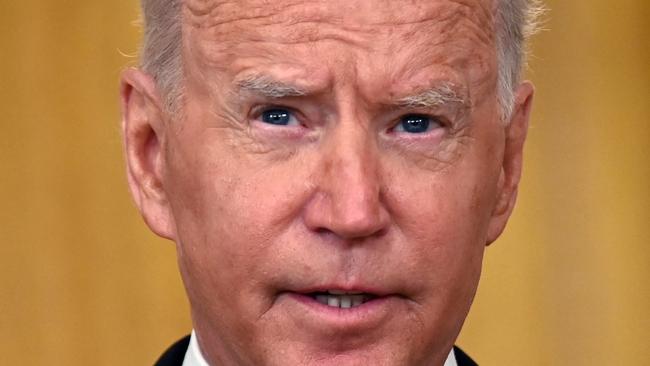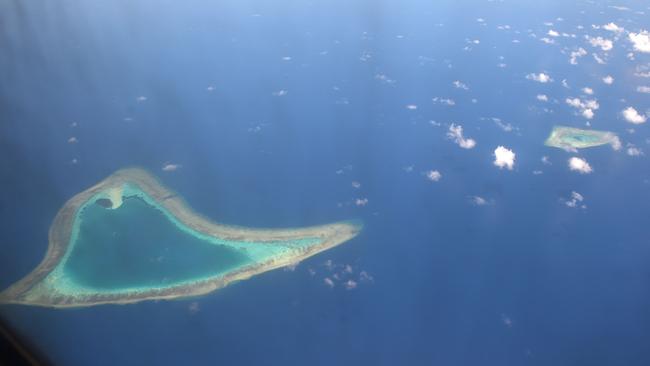America’s defeat in Afghanistan is China, Russia’s ‘delight’, expert tells inquiry
The Taliban’s takeover of Afghanistan has created a power vacuum in the Indo-Pacific that Beijing will see as an opportunity, an inquiry has heard.
NewsWire
Don't miss out on the headlines from NewsWire. Followed categories will be added to My News.
The defeat of the United States in Afghanistan could give rise to a “dangerous situation” in the Indo-Pacific region, a parliamentary inquiry has heard.
Kabul’s fall to the Taliban risk a power vacuum that China and Russia — two of the U.S.’s largest strategic rivals — will jump at the a chance to fill, security expert Peter Jennings said.
“The attitude of Beijing and Moscow to what's happened in Afghanistan will probably be one of absolutely delight that America has taken such a blow in the last few weeks,” the Australian Strategic Policy Institute director said.
China’s president Xi Jinping, Mr Jennings warned, could look to use the U.S. withdrawal to advance his interests in the Indo-Pacific region.
“In Xi Jinping history, he’s been a risk taker. For example in annexing South China Sea, and three air bases there was a major risk to China’s foreign policy interest but he pulled it off, because at the end of the day, no one was concerned and pushed back hard enough to stop it from happening.”
“This does give rise to, as a sort of a dangerous period where you have an America which is inward focused, and really suffering from the experiences of what frankly has to be called a defeat in Afghanistan.
“And you have a China which is desperate to, sort of, prosecute its interests with regard to Taiwan.”
Following the swift fall of Kabul on Sunday, Chinese state media claimed Taiwanese secessionists should take heed, warning the island nation would also be left behind by the Biden administration.
“It's not the first time the US has abandoned its allies and the so-called alliances, which are made use of only as chess pieces in Washington’s global strategy,” a Global Times editorial read.

“Since taking office in January, US President Joe Biden has taken various measures to demonstrate its deterrent against China … Blatantly playing the ‘Taiwan card’ to ruffle China’s feathers.”
China's Communist Party has repeatedly expressed a desire to take control of Taiwan and its 25 million people by 2049.
President Xi Jinping has set a timeline for “reunification” of Taiwan and China by 2049 – under the “One Country, Two Systems” – an offer that has not been accepted by Taiwan.
The U.S. remains the security guarantor of choice for many Indo-Pacific nations, including Taiwan. But Mr Jennings warned the hit taken from Afghanistan would have repercussions.
“It's very hard to see how the US can sort of elegantly pivot from that and now say well here we are in the Indo-Pacific region then, by golly, we’re going to take security issues seriously there,” he said.
“I think this is a jab in the solar plexus on all of America's allies.”

A parliamentary inquiry is currently reviewing Australia’s involvement in strategic regional partnerships such as Association of Southeast Asian Nations and Quadrilateral Security Dialogue with Japan, the U.S. and India.
In a submission to the inquiry, the Australian Member Committee of the Council for Security Cooperation in the Asia Pacific wrote the shift in power from the North Atlantic to Asia was a serious concern for Australia’s significance in the region.
“The issue driving political agendas throughout the Indo-Pacific is coming to terms with a powerful China” they wrote.
“Australia’s relative significance in the region has diminished … Because Australia matters less to Southeast Asia than we once did, we need to be smarter in leveraging the assets we have.”
ASEAN has been reluctant in recent years to take sides in the conflicts like the South China Sea. Dr Lavina Lee – a senior lecturer in international relations at Macquarie University – told the hearing it was hopeful the Quad alliance would be an avenue for Australia to put forward its values as Australia’s strategic options narrow.
“We want to be partnered with countries that can actually act, and that are willing to act,” she said.
“The quad mechanisms are a platform on which we can put forward our preferred values and interests.”
Originally published as America’s defeat in Afghanistan is China, Russia’s ‘delight’, expert tells inquiry
Read related topics:Afghanistan


